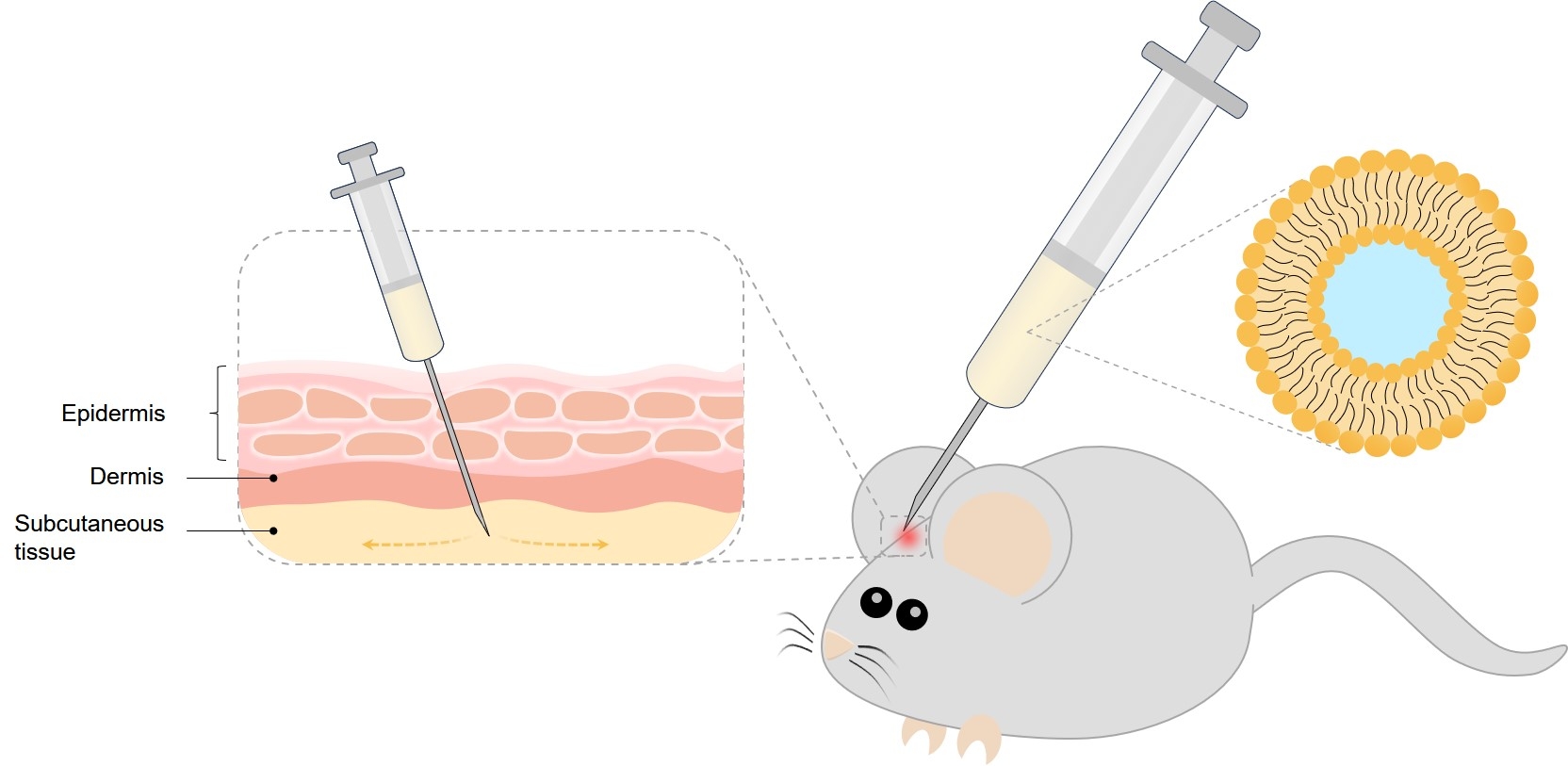Subcutaneous administration of liposomes represents a novel mechanism for drug delivery in various therapeutic modalities. A liposome can be described as a lipid-based vesicle with a spherical shape, which encapsulates various drugs inside its bilayers or aqueous core. This technology has seen extensive utilization recently, showcasing the potential for safe and effective drug delivery through subcutaneous routes.
 Fig.1 Subcutaneous administration.
Fig.1 Subcutaneous administration.
The liposome drug is injected into the fatty subcutaneous tissue situated right under the skin, allowing for the controlled release of the drug over time. The liposome-encased drug molecules are then absorbed by the capillaries or lymphatic vessels in the subcutaneous tissue. With capillary absorption, the liposome enters the bloodstream to be delivered throughout the body. In the case of lymphatic absorption, the liposomes mainly target the immune cells, which are abundant in the lymphatic system.
Upon reaching their target site, the liposomes release their drug cargo into cells through a process called endocytosis or by fusion with the cell membrane. Once inside the cells, the drug interacts with its specific intracellular targets, leading to its pharmacological effect in various therapeutic applications.
Various types of liposomes are employed for subcutaneous administration depending upon therapeutic requirements. Conventional liposomes consist mainly of natural or synthetic phospholipids and cholesterol which enhance their stability. Long-circulating liposomes, often referred to as stealth liposomes, are designed to remain in the bloodstream for an extended period, facilitating prolonged drug release. Ligand-targeted liposomes enhance therapeutic efficiency as they are attached to ligands, allowing them to bind specifically to cancer cells, viruses, or bacteria. pH-sensitive liposomes destabilize at particular pH levels, ideal for delivering drugs inside cells where the pH is typically lower.
The application of subcutaneous administration of liposomes is broad-ranging. In cancer therapy, liposomal drug delivery helps reduce the side-effects of conventional chemotherapy, improving patient compliance due in part to the enhanced targeted delivery. It also circumvents drug resistance, which is a major challenge in cancer therapeutics. Liposomes administered subcutaneously can also be used in dermatology for the localized treatment of skin diseases such as skin cancers, psoriasis, eczema, or other dermatological disorders. Furthermore, liposomes are used for the subcutaneous delivery of antigens or adjuvants, thus playing a crucial role in immunotherapy and vaccinology. By encapsulating bioactive compounds, they improve their stability and biological activity, enhancing therapeutic efficacy.
The method of subcutaneous administration of liposomes provides several benefits. First, it enhances therapeutic efficacy by directing the drug payload to the intended target and protecting them from nonspecific uptake and degradation. This results in reduced systemic toxicity by lowering the exposure of non-targeted organs, thus improving safety profiles of drugs. Additionally, liposomes enable controlled drug release, meaning that medication can be released gradually over an extended duration, potentially reducing the frequency of dosing. Lastly, liposomes provide a solution for the administration of poorly soluble drugs and biologics, carrying these substances effectively into the systemic circulation.
The subcutaneous administration of liposomes offers revolutionary possibilities in overcoming the limitations of traditional drug delivery techniques. As the scientific understanding of these nanocarriers grows, their application will surely continue to evolve, presenting new and exciting opportunities for the world of medicine.
Creative Biolabs provides custom liposomal services and products. Please contact us for more information.
 For Research Use Only. Not For Clinical Use
For Research Use Only. Not For Clinical UseSupports
Online Inquiry